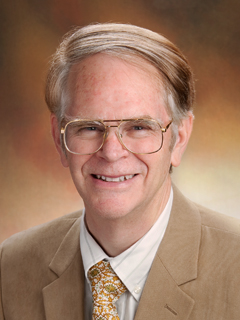HOW CAN WE HELP YOU? Call 1-800-TRY-CHOP
Wallace Laboratory
The Wallace Laboratory investigates the role of mitochondria in human evolution, health, and disease. It is one of the main labs in CHOP’s Center for Mitochondrial and Epigenomic Medicine (CMEM), which aims to unite biomedical scientists, clinicians, and patients, and their families to determine the causes and generate the cures for metabolic and degenerative diseases, cancer, and aging.
More than 35 years ago, lab director Douglas C. Wallace, PhD, and his colleagues founded the field of human mitochondrial genetics. The mitochondria are the cellular power plants, organelles that generate most of the cell’s energy. The mitochondria also contain their own DNA, the mitochondrial DNA (mtDNA), which encodes the wiring diagram for the cell’s power plants. Dr. Wallace showed that the mtDNA is inherited exclusively from the mother and that genetic alterations in the mtDNA can result is a wide range of metabolic and degenerative diseases as well as being important in cancer and aging.
The Wallace Lab is a leader in CMEM studies on mitochondrial and epigenomic dysfunction in a wide range of clinical problems such as autism, epilepsy, heart disease, diabetes and obesity, forms of blindness, Alzheimer and Parkinson disease, cancer, and aging. In addition to examining the essential roles of mitochondria, the lab and CMEM teams are exploring how mitochondrial genes influence adaptation to extremes in our environment such as arctic cold, tropical heat, or high altitude. In addition, they are conducting preclinical studies relevant to developing therapies for mitochondrial dysfunction, for which few effective clinical treatments currently exist.

Douglas C. Wallace, PhD
Director, Center for Mitochondrial and Epigenomic Medicine
Dr. Wallace is a geneticist and evolutionary biologist who founded the field of mitochondrial medicine 40 years ago. He investigates the role of mitochondria in human evolution, health, and disease.